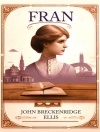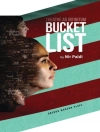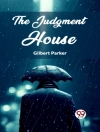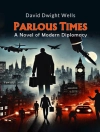In ‘Married, ‘ August Strindberg immerses readers in the tumultuous landscape of interpersonal relationships, crafting a narrative that unveils the complexities of marriage through a blend of realism and modernist sensibilities. Written in Strindberg’s signature incisive prose, the novel navigates themes of love, power dynamics, and existential despair within the confines of domestic life. Through his vivid character portrayals and psychological depth, Strindberg critiques bourgeois values and illustrates the sometimes inescapable discontent found within intimate partnerships, making this work resonate within the literary context of the late 19th century. August Strindberg, a pivotal figure in Swedish literature, is renowned for his exploration of human psychology and social issues, often drawn from his own tumultuous life experiences. His tumultuous marriages and personal struggles with gender roles and identity provided fertile ground for the emotional intensity found in ‘Married.’ Strindberg’s innovative approach to drama and narrative, coupled with his philosophical ponderings, reflects a quest to understand the very nature of human relationships, making this novel a cornerstone of his literary oeuvre. For readers delving into the intricacies of human relationships and the inherent tensions within marriage, ‘Married’ serves as a compelling and thought-provoking exploration. Strindberg’s incisive character studies and unflinching examination of societal norms invite readers to reflect on their own notions of love and partnership, rendering this work an essential read for those interested in the intersections of psychology, sociology, and modernist literature.
Про автора
August Strindberg (1849–1912) was a Swedish playwright, novelist, poet, essayist, and painter, renowned for his contribution to the modern Swedish literature and international drama. Strindberg’s work is characterized by a penetrating exploration of psychology and a fervent critique of social conventions. ‘Giftas’ (‘Married’), a two-volume work, delves into the complexities and tribulations of marriage and relationships, often reflecting Strindberg’s own tumultuous personal life. This work, among others, showcases Strindberg’s keen insight into gender relations and societal norms of his time.
A pivotal figure in the transition from traditional to modern drama, Strindberg’s literary style is marked by naturalism and symbolism, with plays such as ‘Miss Julie’ and ‘The Father’ exploring existential issues and individual psyches. His legacy transcends national boundaries, influencing the trajectory of modernist and expressionist movements. Strindberg is regarded as a complex, often controversial, visionary who laid the groundwork for future playwrights and remains a subject of study and admiration in literary circles around the world.












